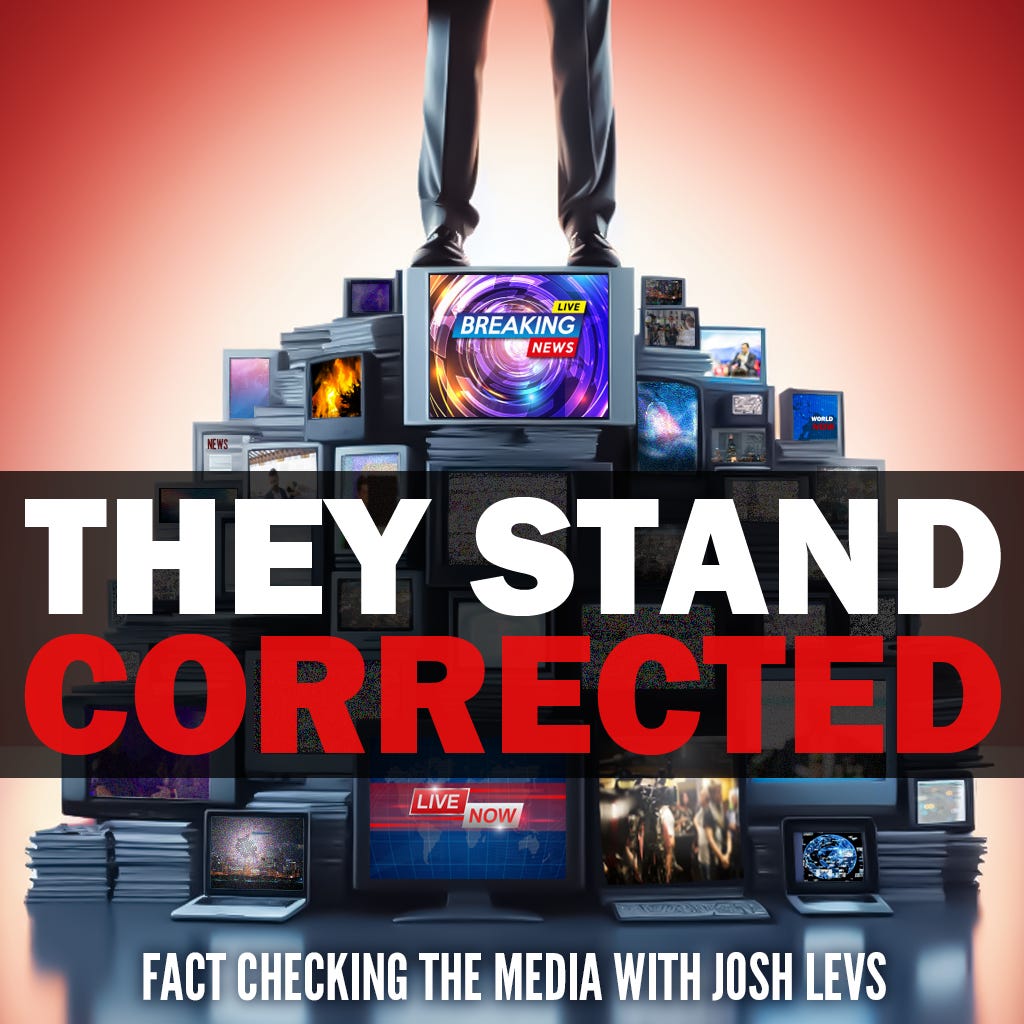Biden, a book, and a big media fiasco
The legacy media’s hypocritical adoration of ‘Original Sin’
A new book on President Joe Biden triggered a firestorm of controversy, for good reason. It’s a powerful reminder of why so many Americans have lost trust in legacy media. Above all else, it’s a testament to the media’s willingness to profit off of its own profound failure.
Titled “Original Sin,” the book looks at “Biden's decline, its cover-up, and his disastrous choice to run again.” The publisher calls it an “unflinching and explosive reckoning” by Jake Tapper of CNN and Alex Thompson of Axios. (I’m not linking to it because I don’t want to encourage you to buy it, but if you’re curious, get it from your public library. The publisher reported sales of almost 100,000 in its first week.) Of course, it’s getting rave reviews from some big media outlets, which are leaping at the chance to blame anyone but themselves for their failure to accurately report on all this while Biden was in office.
But critics across the political spectrum have facts on their side. Some point out that journalists, including these two, should have reported this long ago—and on their own news platforms, rather than waiting until now and cashing in. If big media had been dogged in pursuing the truth, perhaps Biden would not have run for re-election, and the nation might have been spared Trump Takes Washington, the sequel.
Some on the left also argue that the media is fixating on the wrong president. After all, we currently have an elderly president in office who regularly shows he has no grasp on reality, whether or not it’s a sign of any kind of senility.
On the right, critics note that mainstream news organizations helped downplay and delegitimize reports. “Whenever someone dared to point out that Mr. Biden wasn’t up to the job, a praetorian media guard assembled to deny it,” the Wall Street Journal’s editorial board wrote, citing as an example Tapper’s on-air discussion of a Journal report last year. “A more curious journalist would have explored if it were true, and maybe even done some of his own reporting.” (Making PR rounds for the book, Tapper has acknowledged that he should have done better. Thompson, at the otherwise self-congratulatory White House Correspondents Association dinner, said the same about himself and the Washington press corps.)
There are big lessons here about legacy media. First, its hypocrisy is shameless. Big news organizations constantly tell you how great they are at getting past spin to deliver you the unvarnished truth. Now, the message is: It’s the Biden team’s fault! How could we have known?
The book’s description from Penguin Random House, part of the German conglomerate Bertelsmann, screams this hypocrisy. “He, his family, and his senior aides were so convinced that only he could beat Trump again, they lied to themselves, allies, and the public about his condition and limitations.” Now, lucky reader, you can pay to learn “how big the problem was and how many people knew about it.” (Except big mainstream media and the Americans they report to, who didn’t.)
Next, there is nothing impressive about a book like this. After an election loss, many insiders are happy to air grievances; multiply that exponentially for a historic campaign collapse. There's no shortage of people looking to point fingers, especially anonymously -- and the book is packed with anonymous sources.
There's also another problem getting no attention: The news industry’s destructive fixation with turning reporters into “stars.” CNN loves seeing its most highly paid anchors covered by other news agencies and appear on talk shows, even though it never changes the ratings.
In a recent episode of my podcast, They Stand Corrected, I explained some of the steps news agencies take in support of this game. They book guests based not on whom the public should hear from but how hosts will come across. They refuse to fact check what guests say because doing so might, as an executive once told me, “embarrass our anchors.” Behind the scenes, they also ignore bad behaviors by some of these personalities, coddling them. And they fire good writers, editors, producers to “save money” while tossing millions of dollars at “stars.”
A hospital is not about star doctors. A firehouse is not about star firefighters. Any industry built around a crucial mission should avoid this way of thinking. It’s also a distraction. Top executives and owners of legacy media outlets want you focused on personalities rather than institutional failures. But to get legacy media to change, we have to focus on the people who pull the strings. It’s up to them to transform operations and deliver America the truth.
This new book accuses Biden of being "narcissistic, self-delusional, and reckless.” Legacy media: It’s time to look in a mirror.
Josh Levs is host of They Stand Corrected, the podcast and newsletter fact-checking the media. Find him at joshlevs.com.








Thanks, The Contrarian. As you can see, this is about much more than one book. It's about systemic problems plaguing the legacy media ecosystem, which I discuss and diagnose on the podcast and https://theystandcorrected.substack.com/ -- so much to discuss!
“He, his family, and his senior aides were so convinced that only he could beat Trump again, they lied to themselves..."
Here's what gets me: nobody knows what was in anyone's mind. Tapper doesn't know. The Axios guy doesn't know. Their "sources" don't know. I don't know. 352 pages of speculation is worth exactly what I will pay for it: zero.